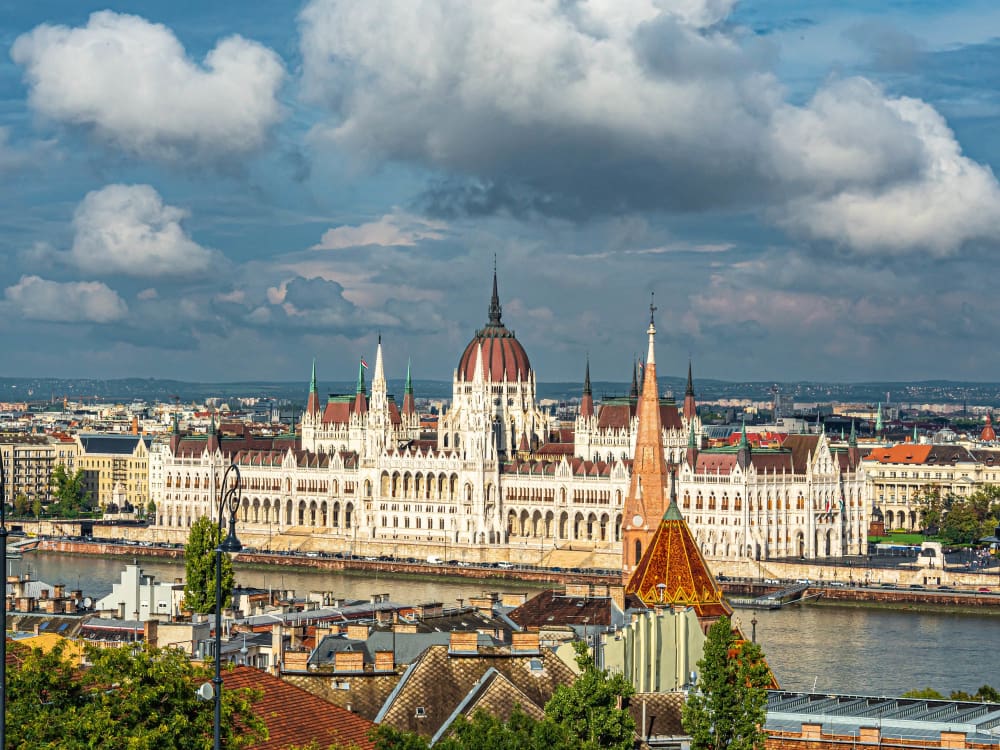Did you know that right after Budapest, London has the second-largest Hungarian population in the world? A vibrant and dynamic group, Hungarians bring their rich heritage with them wherever they go. They hold tight to their roots, upholding them through cultural festivities and traditional events. What’s interesting about the sheer number of Hungarian nationals in the UK is that Hungary is not known for mass emigration. Those who have chosen to move to the UK have managed to build a unique life for themselves in their new home.
Those looking for excitement often play on online casinos in their mother tongue in their spare time. That’s why many betting enthusiasts visit kaszinomagyar.com to find out all there is to know about the best Hungarian casino platforms. Things like promotional offers, available payment methods, and in-depth reviews.
This article will transport you into the world of the Hungarian diaspora; it will explore the identity, contributions, challenges, and accomplishments of Hungarians in the UK.
Cultural Contributions
Starting with the art of the written word, one must mention Mina Loy. A multidisciplinary artist of Hungarian origin, whose poetry was admired by the likes of T.S Eliot, Ezra Pound, Gertrude Stein, Basil Bunting, and other influential writers.
Another Hungarian female writer who contributed to the UK’s cultural landscape was baroness Emma Orczy. A novelist and playwright. This literary tradition continues through George Szirtes. A very productive poet who’s been awarded the T.S Eliot prize for his collection of poetry, ‘’Reel’’.
Other notable Britons of Hungarian origin include Mark Knopfler. A former lead guitarist of Dire Straits. He is now an independent solo artist. There are other musicians such as Kerry Katona, and Miki Berenyi. When it comes to silence, the Nobel Prize-winning physicist Dennis Gabor stands out as the founder of holography.
Community Organizations
Founded in 1990, the British Hungarian Society is all about spreading Hungarian culture and strengthening British-Hungarian relations. It’s a non-profit organization that hosts events where people can discuss political, economic, scientific, educational, and social issues. It organizes cultural exchanges between the two countries and provides networking opportunities.
The Hungarian Culture and Heritage Society is another organization that supports Hungarian communities in the UK. They help people integrate better and contribute to the best of their abilities. It organizes annual programmes centered around traditional music and dancing, supports artisans and craftsmanship, as well as providing financial assistance to those who want to further the purposes of the organization.
Workforce Dynamics
It’s already been noted that Hungarians have made significant contributions to the UK, namely in the realm of science and art. However, immigrants may initially struggle to find work, especially without a university diploma or a solid knowledge of English. Even so, they can still find work opportunities, such as in the hospitality industry.
Many Hungarians open traditional restaurants and cafés, reminiscent of those in their home country. This is an upside of living and working in a multicultural country such as the UK; immigrants get integrated fairly quickly. Alternatively, Hungarians with a higher knowledge of English often work as literary translators, notaries, and interpreters.
Culinary Influence
Holography is all good and well, but Hungary’s true greatest invention is definitely – goulash! This wholesome, stew-like dish has been cooked and reinvented all throughout Britain and is a staple in many homes, Hungarian or not. People who dislike spicy food, might not give it such high praise.
Hungarian cuisine is rich with the nation’s signature ingredient, paprika. Many authentic traditional restaurants have exposed the local populace to the tastes of Hungary. Each year, on the 15th of October, the Hungarian Culture and Heritage Society organizes a festival that celebrates the nation’s many traditions. The event is packed with gourmet delicacies such as sausages, pastries, goulash, and many others.
Language and Education
For many Hungarian immigrant families, retaining their mother tongue and passing it on to the next generations is a matter of national pride. It is integral to maintaining their identity. Balancing between integration and staying in touch with one’s roots can be difficult. Many Hungarians do not wish to completely assimilate, so they along with their kids attend language classes. Many language schools have been opened, at the initiative of organizations such as the Hungarian British Society.
Historical Ties Between Hungary and the UK
There is a reason why the UK is the main destination for so many Hungarians. The two countries have had long-standing diplomatic and political ties that continue to this day. Though the relations cooled during World War I and the days of the Austro-Hungarian Empire.
Both countries were members of the European Union (before Brexit), which positively influenced their economic relations and the trade between the two. Since the UK’s leave from the EU, the countries have been navigating the new dynamics of their relationships. They are focusing on bilateral agreements and cooperation outside of the EU network.
Challenges and Success Stories
The story of Hungarians in the United Kingdom is one of perseverance over adversities. Many of the immigrants that first came to the UK were Hungarian-Jewish refugees. They were fleeing their homeland at the beginning of the 20th century. Many of them went on to become great experts in their fields:
- Erno Goldfinger – a great architect
- Dennis Gabor – a Nobel Prize winner
- Imre Lakatos – a philosopher known for his thesis on the fallibility of mathematics.
Social Integration
There are many community organizations and associations dedicated to Hungarian culture. They host a variety of social activities, events, and national celebrations. These groups not only foster a sense of community among Hungarians but also expose British people to Hungarian culture. All in all, a great way to promote mutual understanding.
Sports and Leisure
Ever a great way to foster teamwork and boost one’s mood, Hungarians take part in various sports activities in their free time. By playing in teams with other Britons, watching the game together over a pint, or going to place a bet on a greyhound race, sports are a great way to encourage camaraderie between the two nations.
Economic Impact
It’s hard to talk about the Hungarian economic impact without mentioning George Soros. The man who famously ‘’broke the bank of England’’. Soros is a hedge fund manager who is known worldwide for his financial acumen. In his notorious maneuver, he bet against the British pound and made a substantial profit. Besides showcasing the impact an individual can have on economic systems, Soros is also known for his philanthropic work, through the Open Society Foundations.
Conclusion
Although smaller than some other communities, the Hungarian impact on the UK is in no way small. They enrich the cultural landscape and make contributions across various sectors as part of the nation’s workforce. By facilitating cultural exchange and mutual understanding, the future of Hungarians in the UK can be even brighter than its past.









Leave a Reply
View Comments